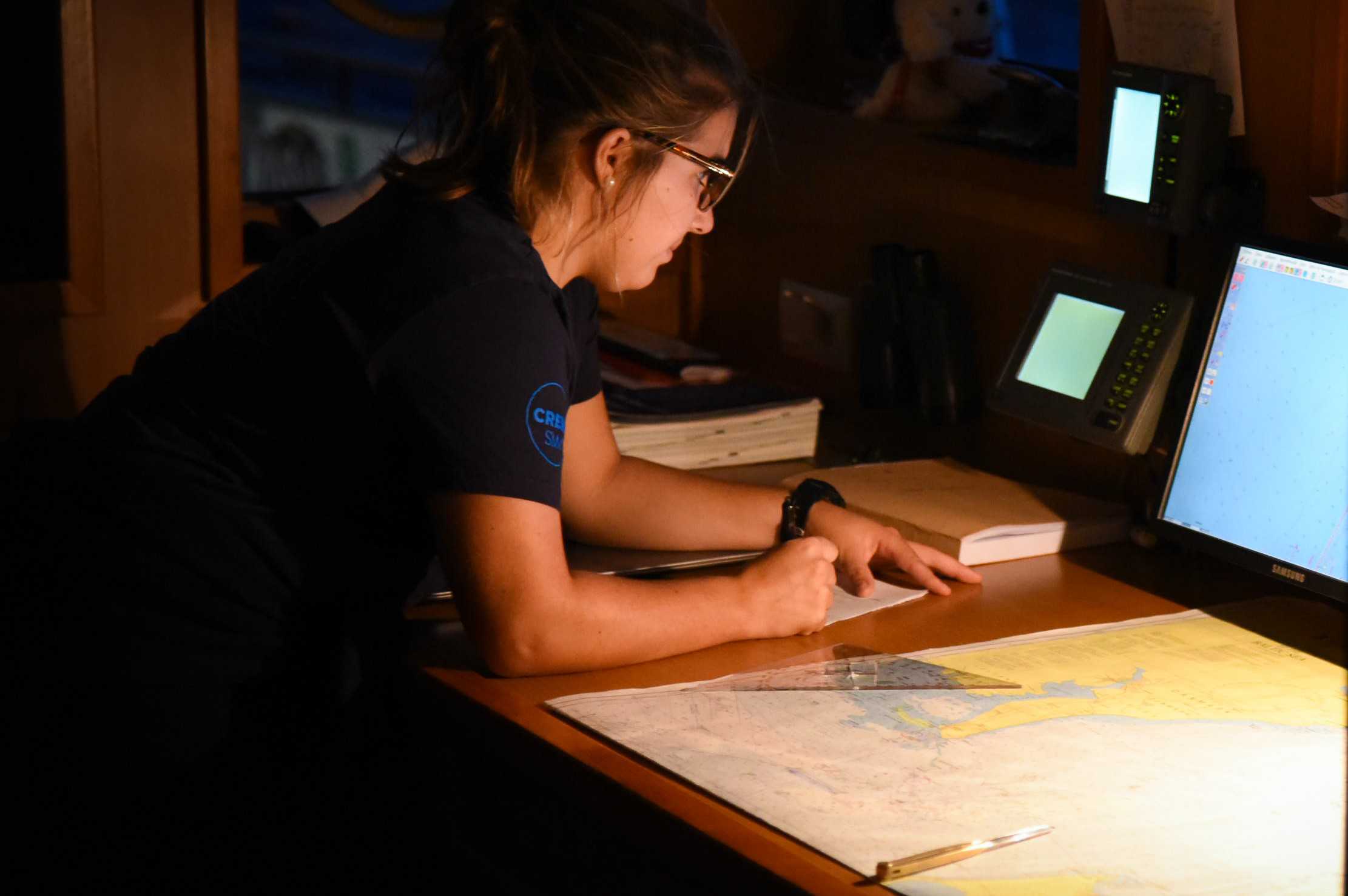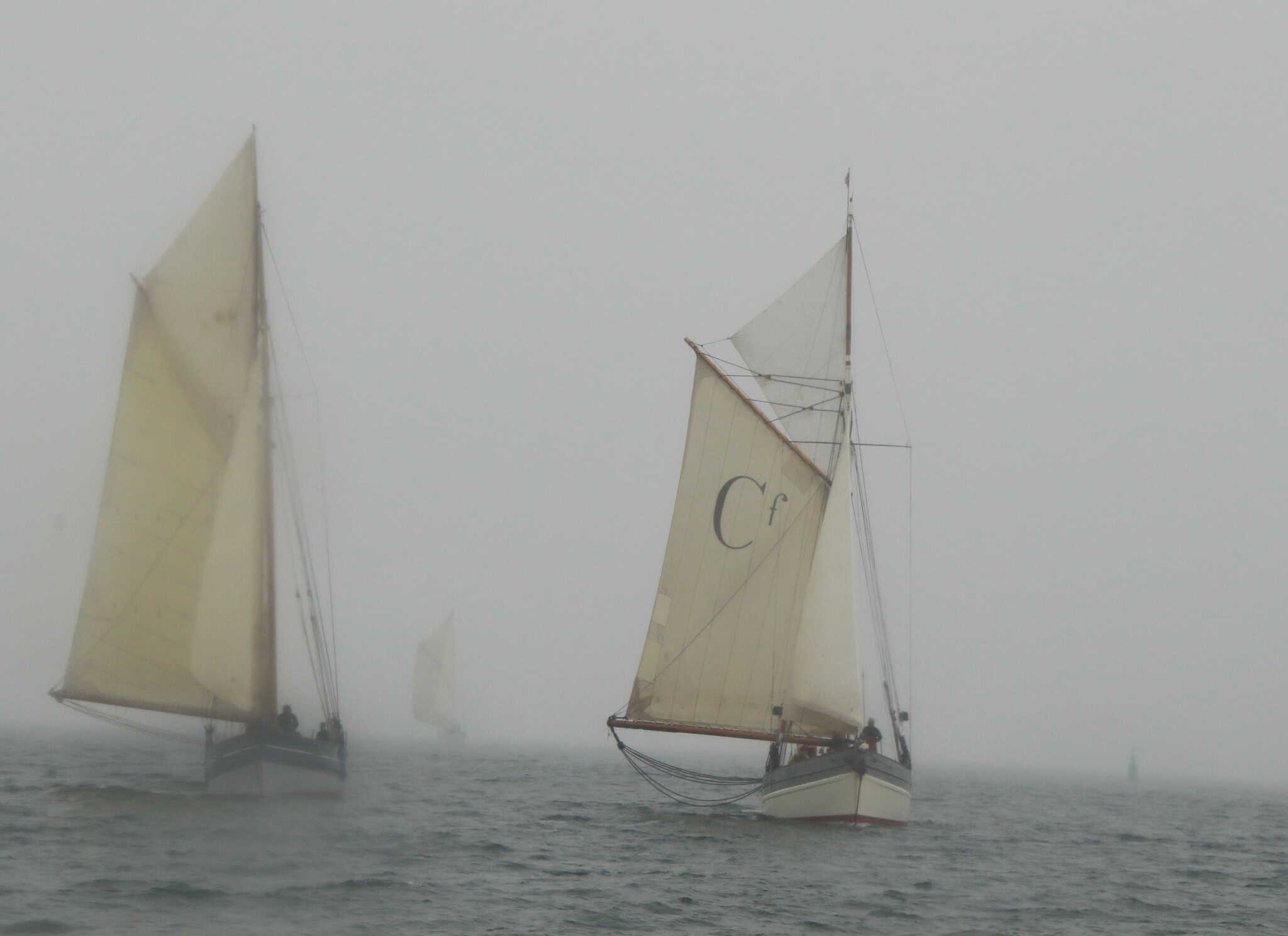Day Skipper Theory Syllabus
The Day Skipper Theory course is a comprehensive introduction to chart work, navigation, meteorology and seamanship. The practical course builds on this knowledge base and puts it into action.
1. Nautical terms
- Parts of a boat and hull
- General nautical terminology
2. Ropework
- Knowledge of the properties and construction of various kinds of rope in common use
- Understanding of commonly used knots, when to use them and how to tie them
3. Anchorwork
- Characteristics of different types of anchor
- Considerations to be taken into account when anchoring
4. Safety
- Knowledge of the safety equipment to be carried, its stowage and use
- Fire precautions and fire fighting
- Use of personal safety equipment, harnesses and lifejackets
- Ability to send a distress signal by VHF radio
- Basic knowledge of rescue procedures including helicopter rescue
5. International Regulations for Preventing Collisions at Sea
- Steering and sailing rules (5,7,8,9,10 and 12-19)
- General rules (all other rules)
6. Definition of position, course and speed
- Latitude and longitude
- Knowledge of standard navigational terms
- True bearings and courses
- The knot

7. Navigational charts and publications
- Information shown on charts, chart symbols and representation of direction and distance
- Navigational publications in common use
- Chart correction
8. Navigational drawing instruments
- Use of parallel rulers, dividers and proprietary plotting instruments
9. Compass
- Application of variation
- Awareness of deviation and its causes
- Use of hand-bearing compass
10. Chartwork
- Dead reckoning and estimated position including an awareness of leeway
- Techniques of visual fixing
- Satellite-derived positions
- Use of waypoints to fix position
- Course to steer
11. Tides and tidal streams
- Tidal definitions, levels and datum
- Tide tables
- Use of Admiralty method of determining tidal height at standard port and awareness of corrections for secondary ports
- Use of tidal diamonds and tidal stream atlases for chartwork
12. Visual aids to navigation
- Lighthouses and beacons, light characteristics
13. Meteorology
- Sources of broadcast meteorological information
- Knowledge of terms used in shipping forecasts, including the Beaufort scale, and their significance to small craft
- Basic knowledge of highs, lows and fronts
14. Passage planning
- Preparation of navigational plan for short coastal passages. Meteorological considerations in planning short coastal passages
- Use of waypoints on passage. Importance of confirmation of position by an independent source
- Keeping a navigational watch
15. Navigation in restricted visibility
- Precautions to be taken in, and limitations imposed by fog

16. Pilotage
- Use of transits, leading lines and clearing lines
- IALA system of buoyage for Region A
- Use of sailing directions
- Pilotage plans and harbour entry
17. Marine environment
- Responsibility for avoiding pollution and protecting the marine environment
TIP for Beginner navigators from Debbie at Classic Sailing
Find a Day Skipper Practical Course Do your Day Skipper Theory online with our Partners at Ardent Training“On board, make sure you give yourself time to navigate. If you are going too fast to navigate ahead of your last position fix, slow down, stop or go back on a reciprocal course (course you have just sailed)….until you are sure of your approach bearing.”



